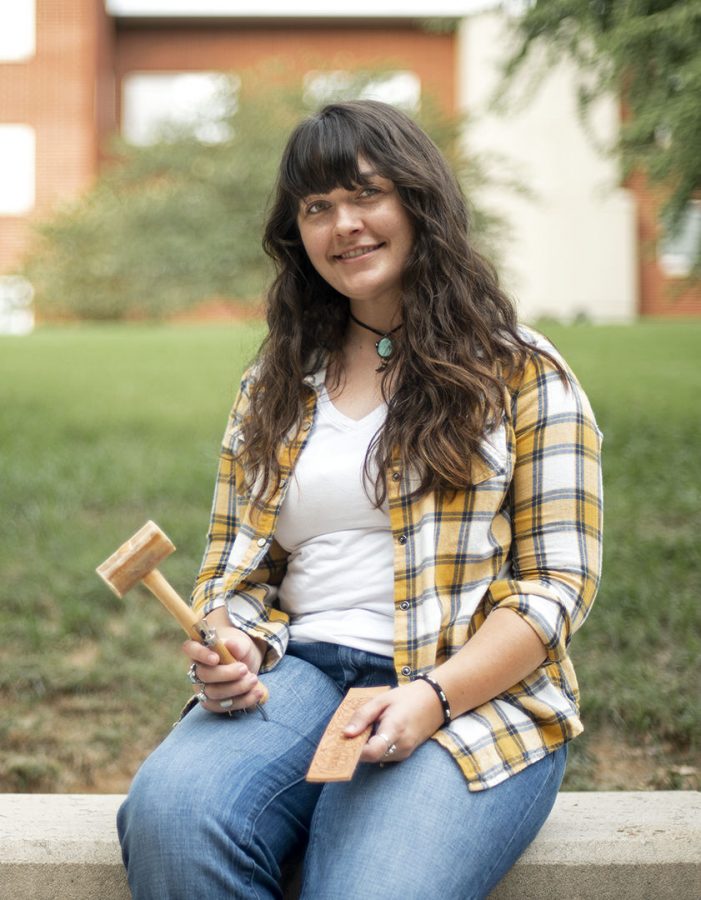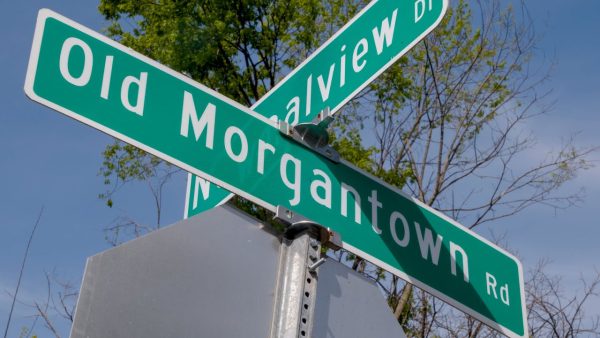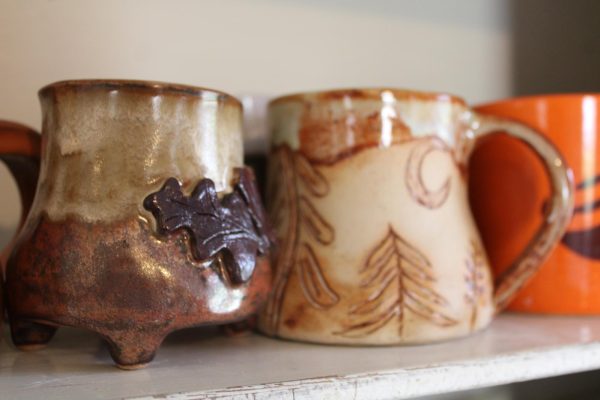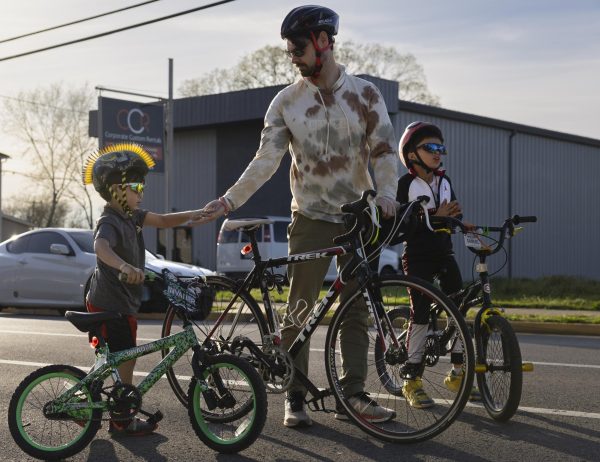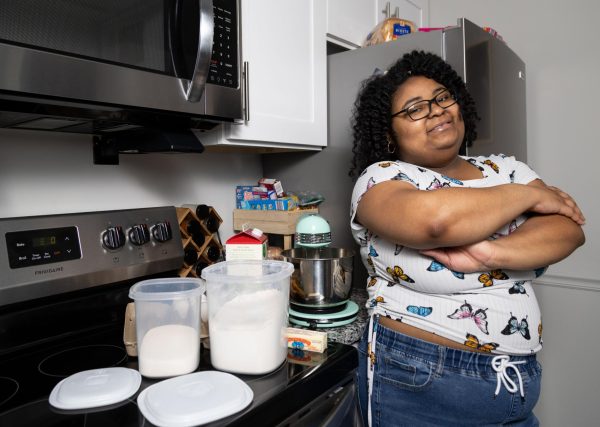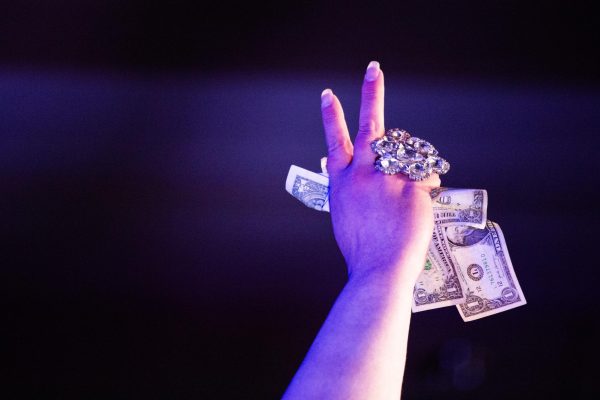Local artist advocates for small businesses through leather art
October 8, 2018
When most people think of art, their mind does not automatically turn to leather carving.
However, for local artist Tiffany Oliver, this art has become a passion and a career.
Oliver said leather art, which traditionally features simple floral or geometric patterns similar to Native American art, was originally used only for utilitarian items such as belts or gun holsters.
“Nowadays, we have embraced the aesthetic of traditional leatherwork, and we include it in less utilitarian items like jewelry, patches, drink koozies and even phone cases,” Oliver said.
Oliver began her work with leather when she was 14. She grew up riding horses and became interested in the intricate designs on the saddles she used. As an art lover, even from an early age, she knew she wanted to try her hand at the leather art she grew up around.
Oliver got her first leather carving kit from Hobby Lobby and immediately got to work. Some of her first projects included a bookmark and a coin purse.
“These small projects taught me the foundations of the art and fueled my fire,” Oliver said. “I probably finished the entire kit in a couple days, and then I was starving for more. I did a few more small things and then started making gun holsters and belts as gifts for my family.”
From there, she began working on larger projects and eventually gained enough confidence to put her pieces up for sale.
“I was not confident that anyone would be willing to pay me what my pieces are worth,” Oliver said. “I can thankfully say that I was way wrong.”
Oliver says that a large part of her apprehension to begin selling came from the large cost and time consumption that came with each project.
“My biggest struggle is the expense,” she said. “Nice tools for leather are super expensive, as is the leather itself. What happens is that when you skimp on quality and buy subpar tools, you end up making costly mistakes to leather that cannot simply be erased or undone.”
The process itself also takes a great deal of time and can be tedious, she said.
First, Oliver said she wets the leather to make it easier to leave impressions on. Then, she uses a stylus to transfer the pattern onto the leather. Once the pattern is on the leather, Oliver uses a swivel knife to “trace cut” the pattern into the leather. Then, Oliver uses the beveler stamp, a tool that brings the piece to life, she said.
“It gives the embossed look that is characteristic of leather work,” Oliver said. “So, once you are done cutting the lines with the swivel knife, the beveler and mallet are used on one side or the other of each cut line.”
Oliver said the work with the beveler and mallet are both the most tedious and time consuming parts of the process. Each movement has to be precise in order to keep the design straight.
Oliver then uses a variety of other stamps to further sculpt the piece and add more details like texture and depth.
Once the final details have been added, Oliver finishes any last minute sewing or stitching and then adds dyes and protective clear coats to the final product.
The process is long and requires a lot of attention to detail, but Oliver has seen a great deal of growth in her work.
According to local artist and business owner Shkala Smith, Oliver has already grown as an artist.
“Her chosen mediums take a lot of time and hard work, and you can tell she’s passionate about what she does,” Smith said. “I can’t wait to see what magic she creates in the future.”
Because Bowling Green doesn’t have a large market for leather art, a majority of her business comes from Etsy customers, Oliver said. She primarily helps customers think up and customize gifts for others.
Oliver said she plans to continue her business, and said this is a large part of why she advocates for small businesses.
“Supporting local artists and small businesses is important,” Oliver said. “We are your friends, family and neighbors. We love creating things specially for you and love customers with crazy ideas for art to create.”
Oliver said the money spent on items by local artists has a much greater impact than the same amount given to a large corporation.
“Trust me, Jeff Bezos doesn’t even feel it when your $20 Prime purchase hits his accounts, but that same $20 could help pay for your local artist’s electric bill or their kid’s lunch,” Oliver said.
Oliver also noted that the financial support means more than just the dollar amount.
“We cherish every single dollar spent on our art built from our love, blood, sweat and tears,” Oliver said. “Most of all, we love that you loved our art enough to spend your hard-earned money on it.”
Features reporter Julie Sisler can be reached at 270-745-6291 and [email protected]. Follow Julie on social media at @julie_sisler.

